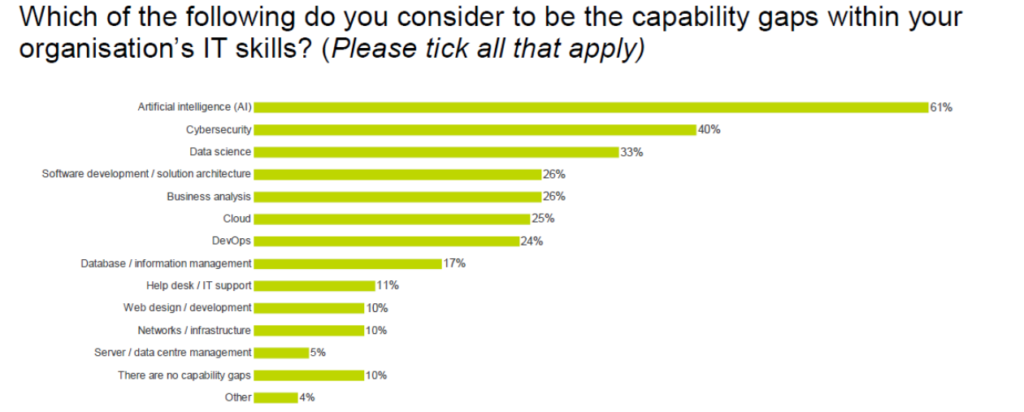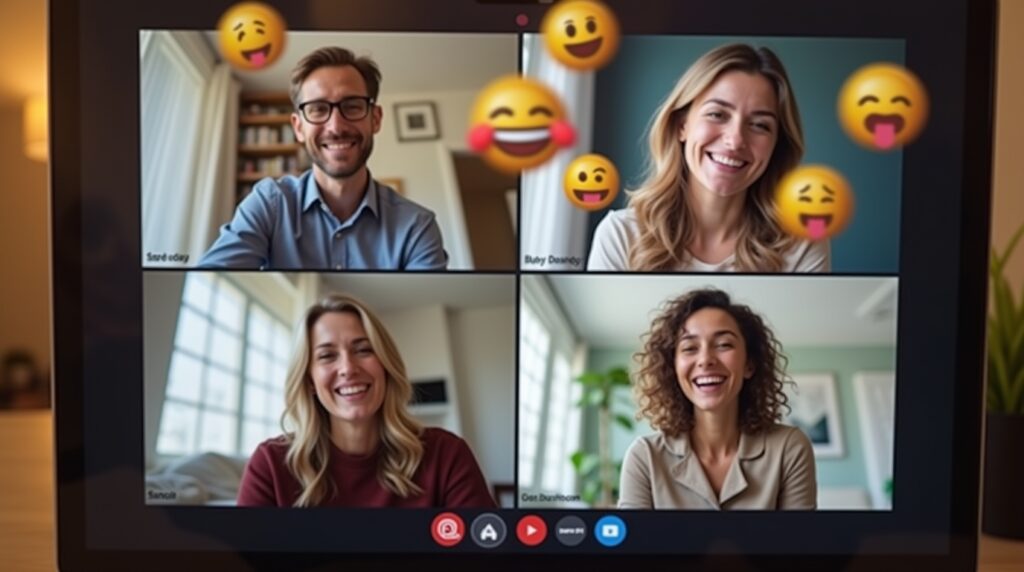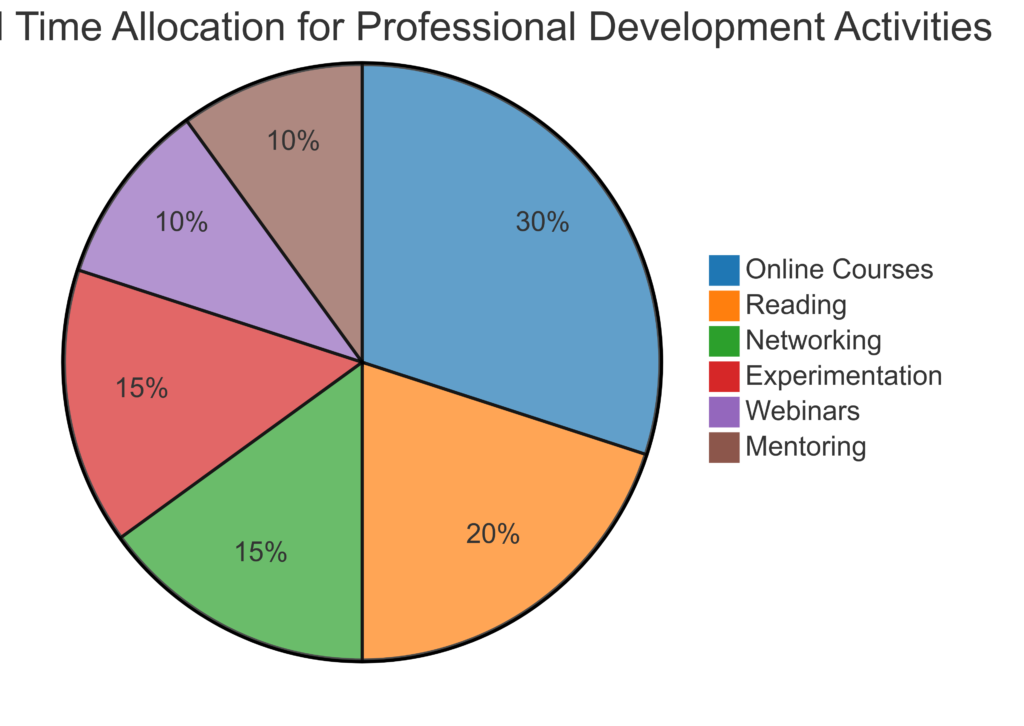Did you ever notice how much your working world has changed in the last several years? If you're like most professionals we've coached, you're likely both excited and a little daunted by the pace of change. Let's examine the most important Professional Development Skills you'll need to thrive in this evolving landscape, drawn from real-life experience and no-nonsense guidance from industry veterans.
#1 Mastering AI and Digital Tools – Your New Superpower
Do you recall when having simple Excel skills could set someone apart? Those days are behind us. Nowadays, your success depends on how well you can collaborate with digital tools and AI systems. Don’t worry, it is not as overwhelming as it seems.

Adopting AI as a Business Partner
You've probably heard a lot about AI and it's true that it has huge potential to change how we work, like the internet did years ago. Consider AI your ally, not your replacement. AI proficiency becomes a whole new professional development skill. Chances are, you probably already can leverage AI to do work for you and don't even realize it yet. For instance, a marketing manager I recently mentored boosted her group's productivity through AI tools for reading through customer feedback – something that took them days now takes them hours.
Companies are already investing heavily, seeing AI's potential to boost productivity by trillions of dollars. However, even though almost all companies are investing, very few feel they are using AI to its full potential. Think of it like this, AI's a bit like the internet was in its early days, there's huge growth to come.
You might be wondering just how much AI could impact the economy. This McKinsey research shows that generative AI (the kind that can create text, images, etc.) could add a massive amount of value – we're talking $2.6 trillion to $4.4 trillion annually! To put it in perspective, that's potentially more than the entire economy of the United Kingdom. This is because AI can help people do their jobs better by automating a lot of tasks, potentially freeing up 60-70% of employees' time.
This means a big jump in how much work people can get done. But, it also means that you and your teams will likely need to adapt. Some jobs will change while your employees might need new skills. With the right support and training, though, generative AI could be a huge win for your business and the economy, leading to real growth and a more productive workforce.
You need to act boldly now to take advantage of AI's benefits and stay competitive, or risk being left behind in this major shift. The potential is enormous, so the real risk isn't thinking too big, but thinking too small about how AI can transform your career or your business.
BCS, The Chartered Institute for IT, asked IT leaders:

Turning Data into Your Competitive Edge
I recently spoke with Sarah, a manager who used to find data analysis difficult. By pursuing a pragmatic approach to developing her data skills, she is now able to lead data-driven meetings with confidence and has achieved two career promotions within 18 months.
In today's world, we're surrounded by information. Think about all the data generated from online shopping, social media or even the sensors in our devices. Data analysis skills are the key to unlocking the valuable insights hidden within all this information. With these skills, you can make sense of complex data, spot trends and identify patterns that would otherwise be invisible. It's like being a detective, finding clues and solving puzzles to understand what's really happening and why.
Being able to analyze data is no longer just for specialists – it's becoming a crucial skill for everyone. Doesn't matter if you're in marketing, sales, finance or healthcare – understanding data helps you make better decisions, backed by evidence. For example you can target the right customers, improve efficiency, or even predict future outcomes. Businesses and organizations that can effectively analyze data have a significant advantage, allowing them to adapt quickly. So, building your data analysis skills is like investing in a superpower that will make you more valuable and effective in almost any field.

#2 Leading with Emotional Intelligence in a Digital Age
Your emotional intelligence is even more critical in today’s workplace. It's a professional development skill that's often overlooked by workers.
Reading the Virtual Space
Have you ever sensed that something was off about your team, even through a screen? That's your emotional intelligence working, sometimes shortened to EQ. It's a skill you can develop with practice. In the workplace, this means understanding your own feelings and the feelings of your colleagues. It's about noticing how emotions affect how we act, both your actions and the actions of others.
For example:
- Are you aware of how your mood changes when you're under pressure?
- Can you tell when a coworker is feeling stressed, even if they don't say anything?
Being able to recognize and manage these emotions is a crucial part of emotional intelligence.
Why is improving this Professional Development Skill so important? Think about it: a workplace with high emotional intelligence is usually a more positive and productive place. When people understand each other's feelings, they communicate better, collaborate more effectively, and resolve conflicts more easily. When people feel valued and understand, teamwork gets easier. By developing your emotional intelligence, you're not just helping yourself, you're contributing to a better work environment for everyone. This will improve team performance and bring success.

Enhancing Virtual Teams
Just last week, I witnessed a team leader convert a disconnected group into a high-performance unit. Her secret? She started “virtual coffee breaks” during which team members could share individual wins and obstacles and forge real relationships in the face of geographical distance.
Try these effective techniques:
- Start meetings with quick personal check-ins
- Create virtual spaces for casual socialization
- Celebrate group successes in a positive, participatory way
#3 Mastering Business in a Global Context
Your ability to work with cultures and virtual channels can make your success in 2025 a reality. It is a very important Professional Development Skill. Let me show you how you can improve in this area.
Bridging Cultural Divides
A colleague recently signed a significant international agreement. Not because he was fluent in multiple languages, but because he took the time to understand cultural sensitivities in communicating in a work environment. He realized that what works in London might not resonate in Tokyo, and he adjusted his style and offer accordingly. This demonstrates that global business acumen isn't just about language – it's about cultural intelligence.

How to Improve Your Global Business Skills:
So, how can you develop this vital Professional Development Skill? Here are some practical steps:
- Ask for feedback: If you have a chance to work on the international project, use this opportunity to ask your coworkers for advice. This will help you to understand the cultural differences better.
- Become a Curious Learner: Start by cultivating genuine curiosity about other cultures. Don't rely on stereotypes. Read books, watch documentaries and follow news from different parts of the world. Pay attention to customs, business etiquette and communication styles that differ from your own. Even small things, like how people greet each other or exchange business cards, can make a big difference.
- Practice Active Listening and Observation: When interacting with people from different backgrounds, listen more than you speak. Pay close attention to their body language, tone of voice and the unspoken cues they might be sending. Observe how they interact with each other. This will give you valuable insights into their cultural norms.
- Seek Out Diverse Perspectives: Don't just stick to your usual circle. Actively seek out opportunities to interact with people from different cultures, both online and offline. Join international professional groups, attend cultural events or even just strike up conversations with people you meet who have different backgrounds. Ask questions respectfully and be open to learning from their experiences.
- Be Mindful of Communication Styles: Different cultures have different communication styles. Some are direct and to the point, while others are more indirect and nuanced. Some value formality, while others prefer a more casual approach. Be aware of these differences and adapt your communication style accordingly. For example, if you're working with someone from a culture that values indirect communication, avoid being overly blunt or confrontational.
#4 Keeping in Front of Industry Trends
The most successful professionals I have ever encountered have one thing in common: a commitment to continuous learning. Industries evolve, technologies emerge and new best practices appear all the time. If you're not actively learning, you're falling behind. World Economic Forum estimated that, by 2025, 50% of all employees will need reskilling due to adopting new technology. A third of the essential skills in 2025 will consist of technology competencies not regarded as crucial just 3 years ago. Let me show you how important it is to cultivate this Professional Development Skill.

The Power of Continuous Learning: James's Story
Meet James, 45, who worked in a traditional marketing role. He could have easily continued doing what he'd always done, but he recognized the growing importance of Artificial Intelligence (AI) in his field. Instead of being intimidated, James plunged headfirst into learning about AI applications in marketing. He didn't become a programmer overnight, but he took online courses, attended webinars, read industry articles and experimented with new AI-powered tools.
Today, James isn't just keeping up with the changes in his industry – he's leading them. His commitment to learning and his proactive approach to embracing new technologies led to a significant promotion. He's now in a managing role, in charge of driving his company's digital transformation journey, using his knowledge of AI to improve marketing strategies, personalize customer experiences and boost overall efficiency. James's story isn't about magic – it's about a proactive approach to Professional Development Skills. His promotion is a direct result of his dedication to continuous improvement.
How to Stay Ahead of the Curve:
So, how can you follow James's example and stay ahead of industry trends? Here are some practical steps:
- Embrace a Growth Mindset: Believe that you can learn new things, no matter your age or experience level. See learning as an ongoing journey, not a destination. Be curious, ask questions and don't be afraid to admit what you don't know.
- Identify Your Learning Sources: Find reliable sources of information relevant to your industry. This could include:
- Industry Publications: Subscribe to magazines, journals and newsletters that cover the latest trends and developments.
- Online Courses: Platforms like Coursera, Udemy, LinkedIn Learning or edX offer a wide range of courses on various topics.
- Podcasts: Listen to industry experts share their insights.
- Webinars: Attend online seminars to learn about new technologies, strategies and best practices.
- Conferences and Events: Attend industry conferences (virtual or in-person) to network with peers and learn from experts.
- Professional Associations: Join organizations related to your field to access resources, networking opportunities and continuing education programs.
- Set Learning Goals: Don't just learn randomly. Set specific, measurable, achievable, relevant and time-bound (SMART) goals for your learning. For example, you might aim to complete an online course on a particular topic within the next three months or read one industry-related book per month.
- Allocate Time for Learning: Treat learning as a priority, not an afterthought. Schedule dedicated time in your week for learning, even if it's just for 30 minutes a day. Consistency is key!
- Apply Your Learning: Don't just passively absorb information. Actively apply what you learn to your work. Experiment with new tools, try out new techniques and share your knowledge with your colleagues. This will reinforce your learning and make it more practical.
- Network and Share: Discuss what you're learning with colleagues, mentors and other professionals in your field. Share your insights, ask for feedback and learn from others' experiences.
By making continuous learning a habit, you'll not only stay relevant in your current role but also open up new opportunities for growth and advancement, potentially even leading to a leadership role like James achieved.

Your Action Plan: Invest in Your Future
Ready to take the next step? Building these essential Professional Development Skills doesn't have to be overwhelming. Here's a simple action plan to get you started today:
- Embrace Practical Learning: Don't just read about it – do it. Choose one AI tool relevant to your work. Instead of aiming for complete mastery (which takes time), focus on understanding its core functions and how it can help you right now. Start small, experiment, and build from there.
- Engage on LinkedIn: If you're already on LinkedIn, commit to engaging more actively. Instead of just browsing, comment thoughtfully on one post per day from someone in your industry. Share relevant articles with your own insights, or join a relevant LinkedIn group and participate in discussions.
- Track Your Growth: Start a simple learning journal. It doesn't need to be fancy. Each week, jot down one new thing you learned, one action you took to improve a skill, and one challenge you faced. This keeps you accountable and highlights your progress.

More Than a Checklist
Remember, your career path is a journey, not a race. These Professional Development Skills aren't items to check off a list. They're ongoing investments in your future, tools that empower you to add significant value – both to your career and your workplace. This isn't about perfection – it's about consistent, focused effort.
Take the First Step
So, which skill will you focus on first? Starting is often the hardest part. Pick one area from this article, commit to a small, achievable action, and get started today. I encourage you to use the space provided in the comment section below to share your chosen skill and any initial experiences or challenges.
FAQ
Professional development skills are the extra tools you need to succeed and grow in your career, beyond just the basic knowledge of your job. These skills help you become a better, more valuable employee and they can open doors to new opportunities. They're things like communicating clearly, working well with others, solving problems creatively and managing your time effectively.
You should really focus on building these skills because they make you adaptable and attractive to employers. Having strong professional development skills shows you're willing to learn and grow. They're not just about getting ahead, they're also about feeling more confident and fulfilled in your work, allowing you to take on new challenges and contribute more meaningfully. So start thinking on which skills you would like to improve.
It's not just about attending any workshop or taking any course. Effective professional development is targeted and relevant to your goals. It needs to address the specific professional development skills you want to improve or the areas where you feel you could be stronger. Think of it like this: if you want to become a better runner, you wouldn't just do random exercises, you'd focus on training that specifically improves your running.
You should also consider that really effective professional development is active and engaging. It's not just about passively listening – it involves practicing, getting feedback and applying what you learn to real-world situations. Look for opportunities that allow you to interact, collaborate and put your new skills to the test. When you're actively involved, you're much more likely to remember and use what you've learned, making the whole process worthwhile and beneficial for your career.
Professional development skills are absolutely important! Think of it as an investment in yourself and your future. In today's fast-paced world, jobs and industries are constantly evolving. If you're not actively learning and growing, you risk falling behind. Professional development keeps you up-to-date with the latest trends and technologies, making you a more valuable and adaptable employee.
You should consider professional development as a crucial part of your career journey, not just an optional extra. It can help you climb the ladder, earn more and even switch to a completely different field if you choose. More importantly, it boosts your confidence and job satisfaction. By continually improving your skills, you'll feel more capable and empowered in your work, leading to a more fulfilling and successful career. It's a win-win situation!
